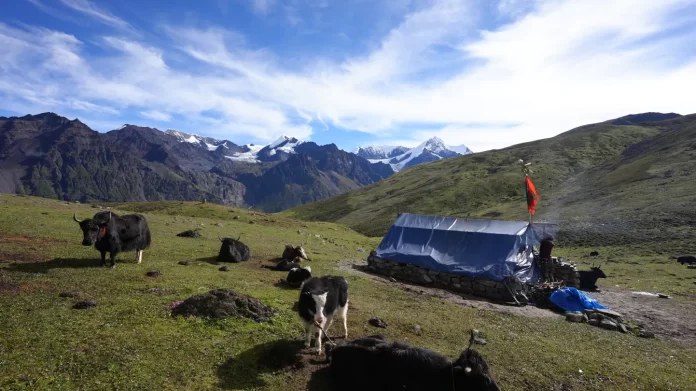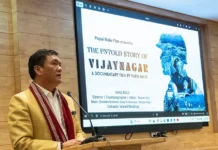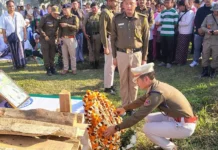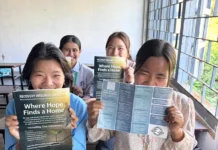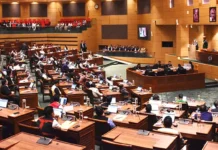[Amar Sangno]
ITANAGAR, 2 Nov: Modernity may be blissful or bountiful for humankind in socioeconomic terms, but it is apparently a simmering onslaught on the Brokpa, an elusive pastoralist tribe of Arunachal Pradesh. With the changing times, the yak herder tribe of the Monpa community is struggling to catch up with modernity, and thus finds itself caught between modernity and marginalisation.
Once considered one of the richest communities among the Monpas, the nomadic tribe, who prefer to live in isolated locations up in the highlands, is facing an existential threat. The age-old cultural occupation of grazing yaks in hostile geo-climatic conditions in a fixed shifting pattern is no longer lucrative for the young generation of the pastoralist tribe.
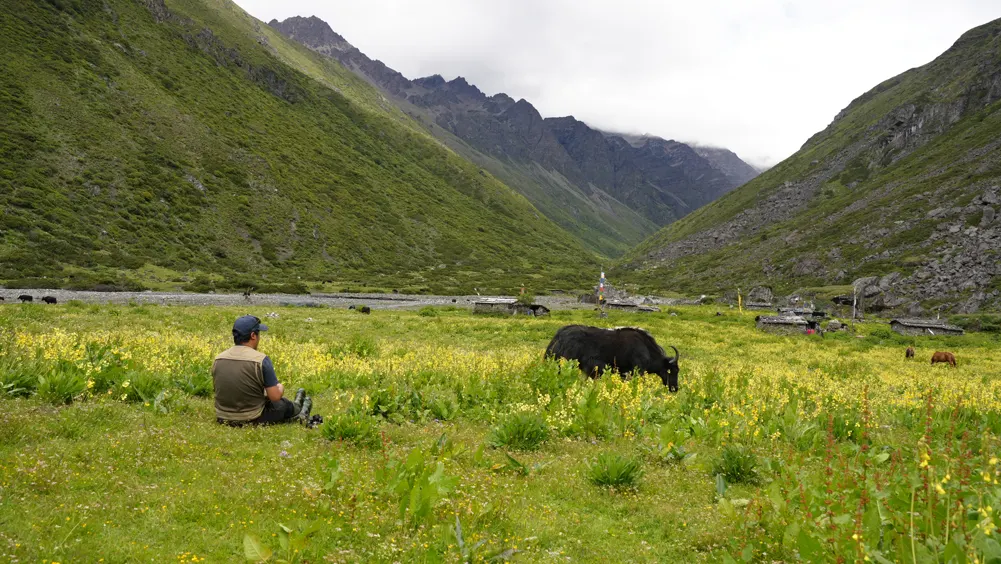
Brokpa is a portmanteau of the words ‘brok’ and ‘pa’. ‘Brok’ means pastoral land and ‘pa’ is a demonym, so the word Brokpa refers to the language spoken by the people living on the mountains.
The Brokpas’ economic life revolves around yaks, and their survival depends entirely on yaks, such as dairy products like churpi (hardened cheese), besides butter, meat, clothing, etc.
The tribe lives sparsely in the highland regions of Tawang and West Kameng districts. As per the animal husbandry, veterinary & diary development department, there are 384 Brokpa families in Tawang district and 260 families are in West Kameng district.
According to the state-wise livestock census conducted by the fishery, animal husbandry & dairying ministry in 2019, the yak population in Arunachal is 2,4075.
Another onslaught that the Brokpas are facing is global warming, which is posing a serious threat to the community as the grazing lands are shrinking with the passage of time. Every year, the Brokpas have to move to above 1,000 metres altitude for grazing, and sometimes end up having verbal clashes with the Indian Army personnel as certain areas under the Indian Army along the line of actual control (LAC) are prohibited areas.
For instance, during summer, the Brokpas of Chuna and Mago villages have to climb with their yaks towards Tulungla, near the LAC, due to scarcity of alpine fodder.
“Rapid modernisation and urban facilities distract our younger generation. They want all those facilities like roads, mobile networks, and electricity. The majority of them do not want to be herdsman,” said Tsetem Pandan, a goan bura of Mago village.
Pandan, in his late 40s, said that a way has to be found to persuade the younger generation to continue the Brokpas’ age-old occupation.
“Brokpas are associated with yaks. If we don’t continue our cultural practice and age-old occupation, our identity will disappear, and it will also impact diary and yaks products,” he said, expressing concern over the future of the Brokpa community.
However, he conjectured that effective measures, “such as processing techniques and value addition to yak products,” might appeal to the young generation if the market value is raised.
Tallo Anthony, a documentary filmmaker who is working on a documentary project titled Brokpa: The Untold Story of Loss of Culture, being funded by the information & public relations department, shared his experience with regard to “the declining pattern of the nomadic tribe.”
“During my shoot, I had the privilege of engaging in some heartwarming discussions with the Brokpa community. It was eye-opening to learn that many of the younger generation are caught between preserving their heritage and seeking opportunities in other towns,” he said.
“Tenzing, a young lad from Mago, dreams of opening a restaurant in Tawang, steering away from the challenging Brokpa lifestyle. It’s a tough decision for them, but it’s important to understand their perspective,” Anthony said.
He also highlighted the looming threat of climate change which disrupts the Brokpas’ fixed grazing pattern, forcing them to travel to higher altitudes for water sources due to the drying up of lakes.
“Yak herding among the Brokpas is a hereditary occupation which is passed on to the current generation by their ancestors. They still practice yak herding, employing primitive methods taught by the elders, and no development is being observed. However, with time the number of Brokpas in the region appears to be declining, which is a serious concern and is not to be overlooked,” said Rajiv Gandhi University PhD research scholar Tenzing Choephel and Dr K Sote Chand.
Choephel and Dr Chand have coauthored an online journal titled ‘Study on pastoralist lifestyle of yak herders of Monpa tribe: Effect of modernisation on traditional way of life’.
Their studies highlighted the socio-cultural aspects of the nomadic pastoralists of Arunachal. “The tradition of migration system is still being followed by the Brokpas without understanding the consequences of global warming on the climate change that will affect them in the future course of action” they observed.
There is a slight transformation in the lifestyle of the Brokpas because of modernisation affecting their food habit, dress, and pattern of movement, they added, and suggested that “modern equipment can facilitate the Brokpas in their work, boosting the productivity and creating organised market for the same.”
In order to provide assistance to the Brokpa community, the Pema Khandu government announced Rs 2.50 crore in 2023 under the Yak Pastures and Fodder Development Scheme.
Animal husbandry, veterinary & dairy development nodal officer Dr Rinchin Lama informed that the scheme is aimed at supporting the yak nomads with basic amenities like shelter, tent, and first-aid kits during their migration to high altitude areas.
“The chief minister is personally monitoring the project, so that no Brokpa family is left out,” he said.
The scheme is also aimed at providing educational support to the children of the Brokpa community, and to “form self-help groups for value addition to yak products, packaging, market linkages, etc,” the officer said.
“Apart from providing logistic support, the project is designed to encourage the community to make itself economically self-sufficient; give priority to the community’s healthcare by conducting regular healthcare measures, particularly on scheduled vaccination coverage; grow alpine fodder in yak populated areas; and provide diary equipment for milk processing and collection,” the officer added.
It is learnt that Khandu is scheduled to launch the project from Mago, which is considered to be one of the largest Brokpa villages in Tawang, this month.

